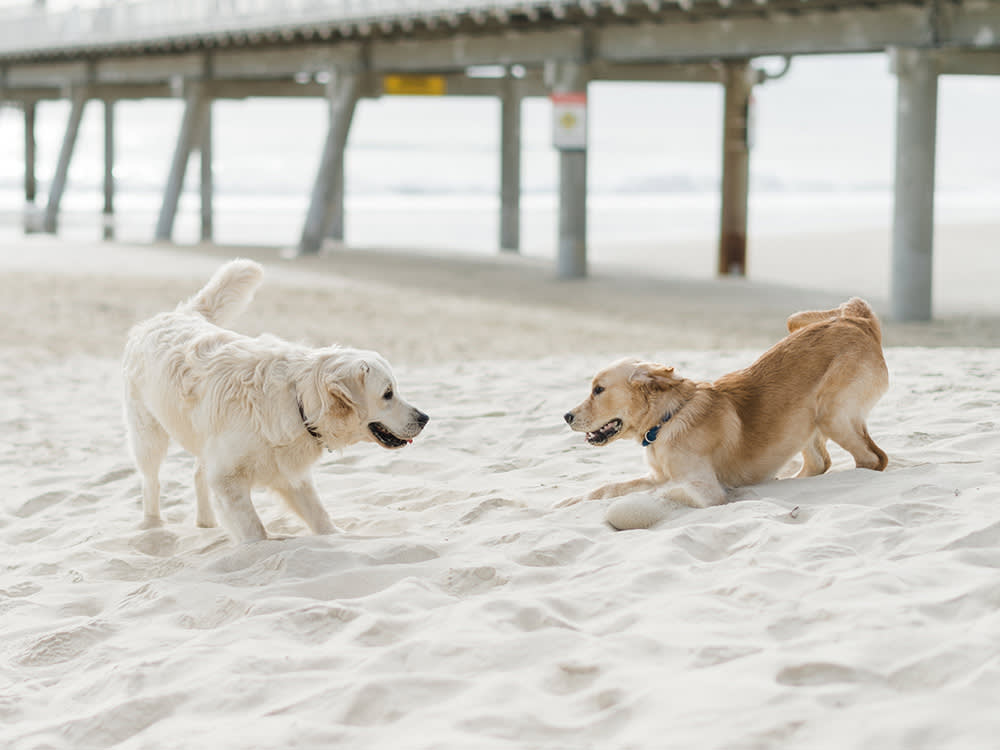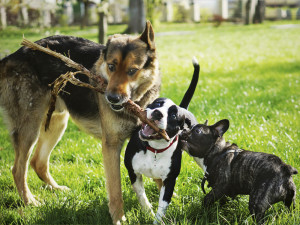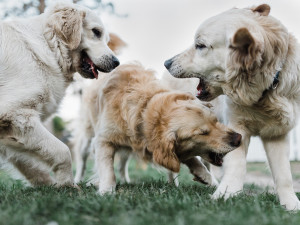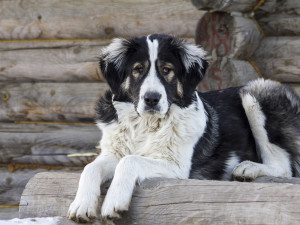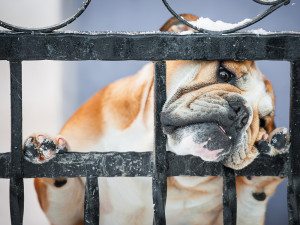After a Fight, Do Dogs Forgive?
Study shows why some dogs choose to be friendly after a fight.
Are dogs the forgiving type? They’re social animals, so it stands to reason that they tend to cooperate and try to minimize conflict. But what happens when there’s a small dust-up or a fight? While they’ll sometimes just walk away and leave each other alone, other times, they’ll go through a process of reconciliation and make up after the fight.
Reconciliation has been studied in a lot of species — mostly primates — but researchers continue to debate how closely these animal reconciliation behaviors approximate forgiveness, apologies, and other conflict-resolution concepts of humans.
How do dogs go from brawling to getting along again, and why do they bother? That’s what a team of researchers at Butler University wanted to answer. Professor Melissa Shyan-Norwalt, PhD, one of the scientists who conducted this researchopens in new tab, has seen cases involving dogs who have bitten their people and then acted “apologetic,” in what seems like a plea for forgiveness. (Other behaviorists, including me, have also seen this phenomenon.) But do dogs forgive other dogs, or do they hold grudges?
Theories on dog forgiveness.
In this study, researchers watched dogs interacting with one another at a two-acre dog park over eight months to learn more about why dogs might forgive after a fight. During that time, they observed interactions between 177 dogs; most dogs were not long-term friendsopens in new tab but strangers or only slightly familiar with one another. As you can imagine, there were plenty of conflicts at the dog park. In reviewing 14 minor fights (with no injuries), the study aimed to test three potential reasons why a dog might choose to forgive.
How much do you spend on your pet per year?
1. Restoring relationships.
One reason why dogs might forgive is to restore a relationship. In social animals, individuals need each other for food, safety, warmth and all of the other benefits of group living; after a conflict, they need to restore the relationship to good terms.
2. Determine status.
Another hypothesis is that reconciliation would restore the social order and clarify each individual’s status. This suggests that lower-status individuals must act deferentially to others in order to reconcile with them.
3. Reducing stress.
The last theory is that forgiveness reduces stress and uncertainty around potential future conflict and aggression. By reducing uncertainty, stress levels decline.
Forgiveness brings stress relief.
In the end, the study found only one theory matched in this context: uncertainty and stress reduction best explained the behavior of the dogs. They found that both victims and aggressors showed reconciliation behaviors toward one another after a conflict. Both tended to spend more time together after the conflict regardless of if they had an existing relationship.
While it seems dogs do forgive after a fight, there’s still a lot more to learn about reconciliation in dogs. In some multi-dog households, it doesn’t always work out. Shyan-Norwalt has observed dogs in the same family who did not reconcile but instead separated after every conflict. She points out that even when dogs do reconcile, “it’s important to remember that reconciliation reduces the risk of repeat aggression only in that immediate situation. It does not predict future behaviors. It’s not an apology—it’s ‘that situation is over, let’s move on…’”
